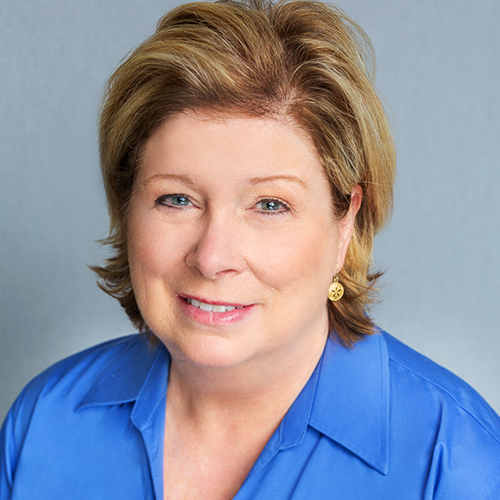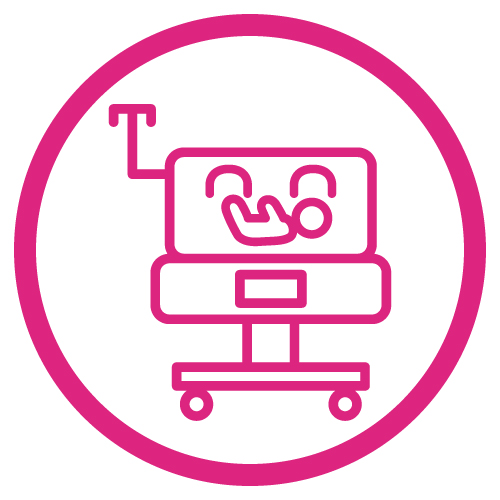 IBCLC Detailed Content Outline: Pathology / Infant Focused CERPs - Section III A
IBCLC Detailed Content Outline: Pathology / Infant Focused CERPs - Section III A
Access CERPs on Pathology / Infant for the IBCLC Detailed Content Outline recertification requirements. On-demand viewing of the latest Pathology / Infant focused IBCLC CERPs at your own pace.
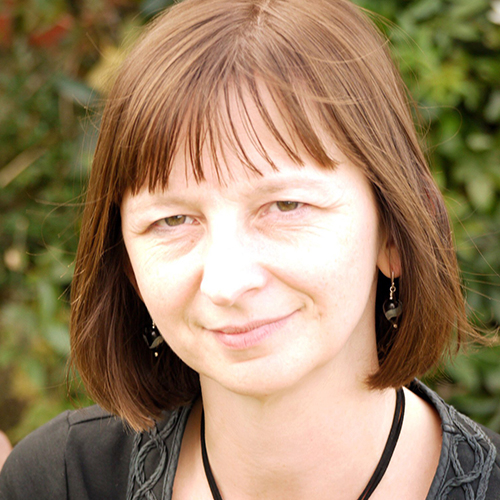
The Elephant In The Room - Bleeding Post Tongue-Tie Division

Sarah is a Registered General Nurse, Health Visitor, International Board Certified Lactation Consultant and Tongue-tie Practitioner with a busy private practice based in Cambridgeshire, UK. Sarah is a founder member and former Chair of The Association of Tongue-tie Practitioners and has written a book for parents and professionals, ‘Why Tongue-tie Matters’. Sarah lectures nationally and internationally on infant feeding and tongue-tie.
Topic: COVID-19 and Implications for Tongue-Tie Division in Infants - [View Abstract]
Topic: Is This a Tongue-Tie: How Do We Decide? - [View Abstract]
Topic: The Elephant In The Room - Bleeding Post Tongue-Tie Division - [View Abstract]
This presentation explores professional and lay perspectives on bleeding post tongue-tie division. It will examine what constitutes abnormal bleeding and why this may occur. Risk assessment and reduction will be discussed. Management strategies that have been found to be effective, along with the development of guidelines on bleeding by the Association of Tongue-tie Practitioners will be described.
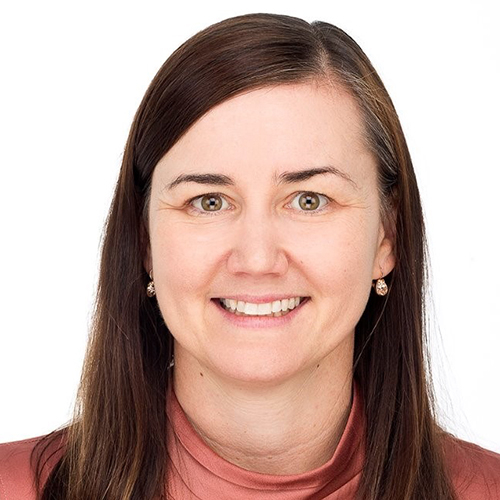
The Impact of Tongue-Tie on Swallowing and the Implications for Breastfeeding and Starting Solids

Dr. Sharon Smart is a dedicated and accomplished Lecturer in the Curtin School of Allied Health. With over a decade of experience, Dr Smart has a proven track record of coordinating and teaching undergraduate and postgraduate units in paediatric speech, language, feeding and swallowing disorders.
Dr. Smart has made significant contributions to the study of infant feeding, swallowing disorders in children, tongue-tie, and paediatric speech and language development. Her passion for translating clinical problems into research topics has improved the lives of countless children and their families.
In addition to her research, Sharon is committed to educating the next generation of health professionals. She takes pride in teaching evidence-based assessment and intervention practices, empowering students and clinicians to become skilled and compassionate practitioners.
Dr. Smart serves as a board member on two organisations: the Australasian Society of Tongue and Lip Tie (ASTLIT) and the International Consortium of Ankylofrenula Professionals (ICAP). As a board member, Sharon contributes her expertise and leadership to help guide these organisations in achieving their missions.
Infants and children with tongue-tie can have difficulty swallowing, poor breastfeeding latch, and difficulty transitioning to solid foods. The impact of tongue-tie on these functions can have long-lasting effects on a child's development and well-being. This presentation will include discussion on the anatomy and physiology of swallowing and how it can be impacted by a restricted lingual frenulum. It will include discussion on the typical development of oral motor skills during breastfeeding and transition to solids, and the impact that tongue-tie can contribute to the introduction of solid foods, and challenges with chewing and swallowing. Overall, this presentation will aim to increase your understanding the impact of tongue-tie on feeding and swallowing which is crucial for healthcare professionals working with infants and young children to improve outcomes for both the child and family.
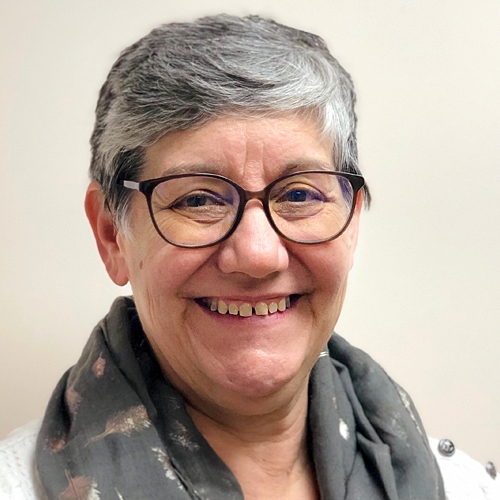
The Impact of Tongue-Tie on the Musculoskeletal and Nervous Systems

Dr. Sharon A. Vallone is a graduate of Rutgers University (AB Microbiology 1978) and New York Chiropractic College (1986). She completed her Diplomate in Clinical Chiropractic Pediatrics in 1996 through Palmer College and received her appointment as Fellow in Clinical Chiropractic Pediatrics in 2003. Dr. Vallone has a private practice limited to high risk pregnancies and challenged children in Connecticut and is currently the Chair of the Board of Kentuckiana Children’s Center in Louisville, KY and past Vice Chair of the International Chiropractic Association’s Council Pediatric Council. She is an international speaker, author, and editor of the Journal of Clinical Chiropractic Pediatrics. Sharon brings 33+ years of pediatric chiropractic experience with a primary interest in pregnancy, birth trauma, breastfeeding and problems with infant /toddler neurodevelopment.
Topic: Wondering about “The Wanderer?” The Vagus and Ankyloglossia - [View Abstract]
The impact of tethered oral tissues on the fascial system of the neonate can be the origin of both successful and unsuccessful compensatory biomechanical alterations in an attempt to breastfeed. These biomechanical alterations can manifest as asymmetries in appearance and function as well as in behavioral challenges ranging from sleep disturbance, colic like symptoms and inconsolable crying. It is important to understand these issues when looking at the whole picture so as to improve outcomes when surgical interventions are required. The goal of this lecture will be to support the attendees with understanding the relationship between structure and function and how this ties in with physical limitations like tongue and lip tie, the biomechanical assessment and discussion of manual therapies available to assist the breastfeeding dyad.

The Integration of Feeding Skills: Oral Motor Patterns and Reflexes

Kristie Gatto, MA, CCC-SLP, COM received her bachelor’s and master’s degrees from the University of Houston in Houston, Texas. She has worked as a speech-language pathologist in the public and private school systems, skilled nursing, rehabilitation and children’s hospitals, and in private practice. In 2004, Ms. Gatto became the co-owner of a private practice in Northwest Houston and began her journey in treating children with pediatric feeding disorders. After years of searching for answers in traditional feeding approaches, she underwent training in the field of Orofacial Myology and became the first certified orofacial myologist in the city of Houston in 2011. Ms. Gatto is currently the owner of The Speech and Language Connection, which has two offices in the greater Houston area and employs 21 speech-language pathologists with various specialties.
For the past ten years, she has focused her clinical skills on treating patients with issues in feeding, dysphagia, deglutition, oral sensory aversion, orofacial myology, and swallowing- related disorders, as well as articulation, phonological processing, apraxia, and early childhood intervention.
Ms. Gatto is a member of the American Speech-Language-Hearing Association (ASHA), International Association of Orofacial Myology (IAOM), American Academy of Private Practice in Speech Pathology & Audiology (AAPPSPA), Texas Speech-Language-Hearing Association (TSHA), and Houston Association for Communication Disorders (HACD). Additionally, she serves on the board of directors for the IAOM and AAPPSPA and the Community Advisory Board for the University of Houston.
Babies are born with lips, tongues, jaws, cheeks and reflexes that were designed for natural acquisition of skills in feeding, drinking, facial expression and, in speech. Oral motor patterns are the functioning of these structures, whereas, the reflexes are the infant’s mode of survival. These skills occur naturally when the oral structure is intact. When abnormality to the anatomy occurs, maladaptive movements are created and compensatory strategies are learned. The infant, child, or adult modifies their muscle functioning to eat, drink, and speak that directly affects the appropriate integration of higher skills during these feeding milestones. This session will address the normal and abnormal oral motor patterns, feeding milestones and the natural integration of the reflexes.
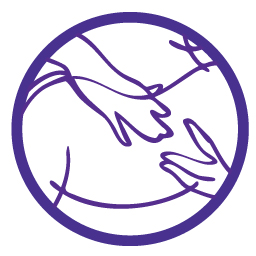
View Details / Enroll
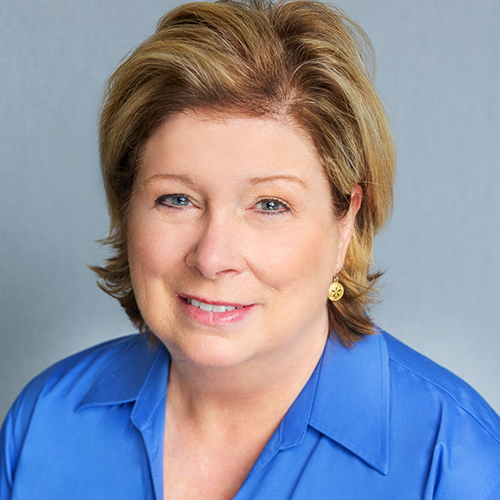

Dr. Scott is the coordinator of the advanced practitioner group for Mednax Medical Group in Nashville, Tennessee as well as the coordinator of the neonatal transport service at Centennial Medical Center, also in Nashville. She is also an assistant professor in the neonatal nurse practitioner program at Vanderbilt University School of Nursing. For the last few years, she has become interested in the use of telemedicine in neonatal care and works with a Neonatology practice that actually practices using telemedicine in Level I and II facilities. She is also involved in quality improvement at the state level through her work with the Tennessee Initiative for Perinatal Quality Care.
Patti received her Bachelor’s Degree in Nursing from Vanderbilt University in 1988. Her Masters of Science Degree in Nursing with a specialty in neonatal critical care was completed in 1993 from Vanderbilt University and her Doctorate in Nursing Practice from the University of Tennessee Health Science Center. She has successfully completed the National Certification Corporation's Neonatal Nurse Practitioner, Neonatal Pediatric Transport, and the Neonatal Intensive Care examinations.
Patti is a member of several nursing, advanced practice, and neonatal professional organizations. She is an active NRP and S.T.A.B.L.E. instructor and has developed and provided numerous neonatal educational courses for staff.
The use of telemedicine is an emerging trend in health care, this includes neonatal care. Benefits include real-time access to experts routinely and during emergency situations such as delivery room resuscitations and stabilizations, the ability for families to stay connected to their newborn in the Newborn Intensive Care Unit (NICU) after the mother has been discharged from the hospital, and to assist in the decision for transport of the newborn to a higher level of care. Several studies have documented the reduction in transfers from community hospitals since telehealth has been implemented in the nursery. Limitations include the need for knowledgeable and experienced providers to be at bedside, physicians who are familiar with advance practice providers and their abilities, and the technical challenges that can present and have to remedied.
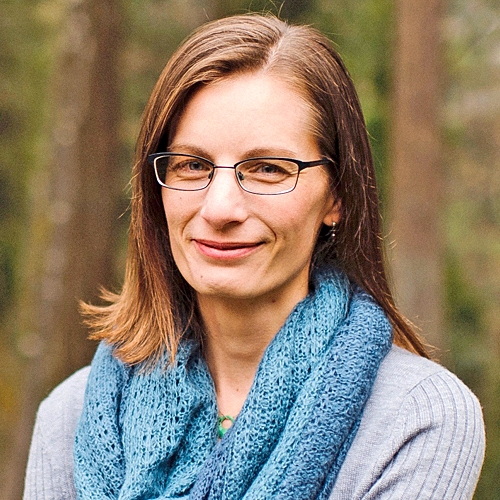
The Science of Infant Feeding: New Research on Gut Development, Microbiome, and Risk of Allergy

Alice Callahan completed her PhD in Nutritional Biology at UC Davis in 2008, followed by a postdoc in fetal physiology at the University of Arizona. She left the academic track in 2011 to pursue a dual career in college teaching and science writing. Her book, The Science of Mom: A Research-Based Guide to Your Baby’s First Year, about the science of raising a baby, was published in 2015 by Johns Hopkins University Press and was named one of the best science books of the year by Science News. As a freelance writer, Callahan covers health and nutrition topics – often focusing on pregnancy, infancy, and childhood – for many publications, including The New York Times, Washington Post, and Lifehacker. She and her family live in Eugene, Oregon, where she also teaches nutrition and physiology at the University of Oregon and Lane Community College.
Research continually uncovers the complex relationship between infant feeding and development. It’s driven by our fascination and desire to understand early development, but it also has real-world implications for the decisions parents make about how to feed their babies. New parents and even perinatal professionals are often confused about infant feeding guidelines, finding information to be conflicting, overwhelming, and ever-changing. We’ll start with an overview of how an infant’s gastrointestinal tract develops and what we know about how human milk consumption supports optimal development. Then we’ll delve into the latest research on intestinal permeability, early formula supplementation, and timing of introduction of solid foods to prevent allergies. Feeding is one of the primary ways that we care for and show babies that we love them, and by providing up-to-date and accurate information, perinatal professionals can help families feel calm and confident about their feeding choices.

View Details / Enroll
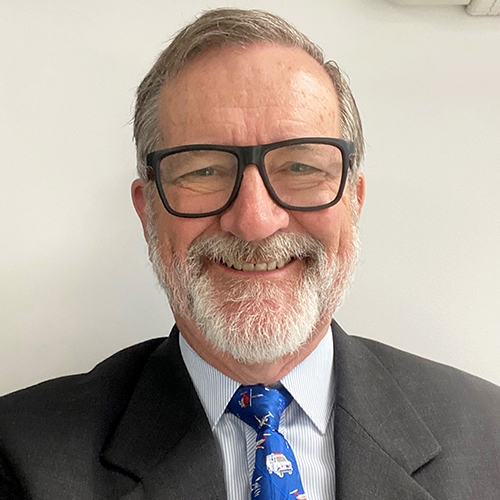

Dr. Andrew Berry, AM MB BS FRACP, is a Neonatal and Paediatric Retrieval Specialist. He has vast experience in neonatal and paediatric critical care transport since 1977. This includes being the head of Neonatal Intensive Care, and Director of Newborn Transport Service, both at Royal Alexandra Hospital for Children in Sydney, Australia.He is currently State Director at NETS, the Newborn and Paediatric Emergency Transport Service of New South Wales, Australia.
Dr. Berry is a fixed wing and rotary wing pilot. In 1989 he co-founded Child Flight Inc., and dedicated helicopter service for children.
His expertise is regularly sought on how to develop and operate emergency transport services and associated advisory programs for perinatal, neonatal and paediatric acute care in Australia, Brunei, New Zealand, Malaysia, Hong Kong, Canada, England, Scotland, Singapore, and the USA.
Air transport is commonly required for acute patient transport; including of sick newborns. Regionalization of tertiary neonatal care often means longer transport distances for patients between local referring hospitals and places of definitive care. The physiology of the newborn and some unique features of disease processes in the newborn present some challenges in safe transport by air. Fixed wing and rotary wing transport modes expose the sick newborn to different stressors according to their own unique variable cabin environments and altitude. An understanding of how newborns react to air transport and how to modify the air transport environment can both contribute to safer, more effective transport of the newborn.
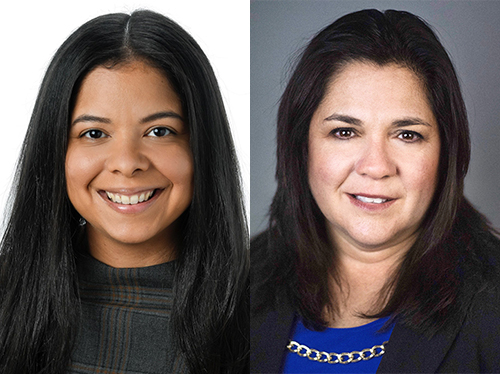
The Untethered Method Integrated: Team Approach to Assessment and Oral Habilitation

Shana Quarrie is an Occupational Therapist for over 12 years and a Certified Lactation Counselor for 5 years and now an IBCLC as of June 2023. She has worked in the pediatric setting for over a decade and in one of the largest Level 4 NICUs in the United States. Shana is one of the Co-Founders of Baby B.L.I.S.S. Feeding Collaborative of Central Florida a private practice formed with two RN, IBCLC’s. They help families prenatally, antepartum and postpartum navigate growth development and feeding journey.
Shana specializes in the medically complex infant such as 23 week preemies, brachial plexus injuries and any neurodevelopmental delays. Shana finds great improvement when combining neurodevelopmental techniques into her practice for optimal feeding and development outcomes. Her mantra is to help families thrive not just in her clinic during their sessions but in their natural environment.
Annette Leary is a registered nurse with over 35 years of experience working in Maternal Child Health (pediatrics, postpartum, home health care and level 2 NICU). She became an IBCLC in 1995. Annette owns a private practice providing home, office, and virtual visits: Orlando Lactation and Wellness Services. She formed a collaboration company Baby B.L.I.S.S. Central Florida Feeding Collaborative, with an occupational therapist and IBCLC. They help families prenatally, antepartum and post partum navigate the growth, development and feeding journey of their children.
Annette began her Upledger Craniosacral therapy training in 2015, taking advanced maternal and pediatric specialty classes. She finds great improvement incorporating craniosacral therapy techniques with lactation consulting. Helping Families Latch onto Parenting has always been Annette's mantra.
Parents are seeking answers to their baby’s feeding difficulties. They verbalize that they are confused by conflicting and contradicting information. They seek opinions from the internet, social media, friends and health care providers that further frustrate them. These families often have to self-navigate this feeding and oral health journey for their baby. They are seeking a functional assessment of the baby’s ability to organize the baby’s suck, swallow and breath pattern to get a differential analysis. Finding providers who can administer the assessment and provide lactation support to the feeding difficulties often means multiple appointments, different offices, and prolonged time. Collaborative practice models place a focus on co-evaluations, co-treatments and care plans to provide the parents with a comprehensive guide of solutions and tools. This allows them to facilitate their baby’s oral motor habilitation and improve their feeding abilities in a timely manner within a single location. These complete assessments, therapeutic modalities and care plans help families feel empowered to make the best decisions on whether to proceed with a frenotomy or not. This program will include 2 case reviews of a family who chose to do the frenotomy and one who did not and how the pre and post frenotomy support care assisted these decisions.

The Vagus Nerve: Branchial Motor / Special Visceral Efferents: The Pharynx, Larynx, Soft Palate and one tiny tongue muscle

Michelle has been a pediatric neurodevelopmental Occupational therapist specializing in precrawling infants for over 26 years. She has specialty certifications and training in lactation, manual therapy, and pre and peri natal psychology. Michelle has specialized in optimal cranial nerve function and oral restrictions, with an emphasis on infant movement, innate biological imperatives and human potential, providing novel curriculums, support and resources for both professionals and parents. She enjoys collaborating and working in teams for babies and families going through the tethered oral tissues release process.
Topic: Breastfeeding and Cranial Nerve Dysfunction – the what, who and why of Cranial Nerve Dysfunction in the newborn to precrawling baby - [View Abstract]
Topic: Compensatory vs Novel Movements: 3 Keys for Babies With Tongue, Lip and Buccal Restrictions - [View Abstract]
Topic: Interoception: Beyond the Homunculus....The Real Sixth Sense and Its Primary Function as Sensory Input to the Autonomic Nervous System - [View Abstract]
Topic: The Vagus Nerve: Branchial Motor / Special Visceral Efferents: The Pharynx, Larynx, Soft Palate and one tiny tongue muscle - [View Abstract]
Topic: TummyTime!™ : A Therapeutic Strategy for Parents and Babies - [View Abstract]
Babies with tongue/oral restrictions and Cranial Nerve Dysfunction (CND) present with clinical indicators of decreased airway patency which interrupt latch and breastfeeding skills, airway development and Autonomic Nervous System regulation. These difficulties are noted clinically by mouth breathing, open mouth posture, stridor, snoring and other noisy breathing, suboptimal breathing patterns, decreased suck/swallow/breathe coordination and poor tongue and jaw posture / movement during activity and rest. Many of us are familiar with the Vagus nerve and the vital role it plays as our body’s sensory/afferent relayer of information to the central nervous system, as well, the Vagus serves as the primary parasympathetic influence on most of our viscera, including our heart, which helps us regulate. However, what we often gloss over is the motor input to the skeletal muscles of the soft palate, pharynx, larynx and tongue which directly impact breathing. This lecture will delve into this fascinating topic and provide clinical applications.

View Details / Enroll
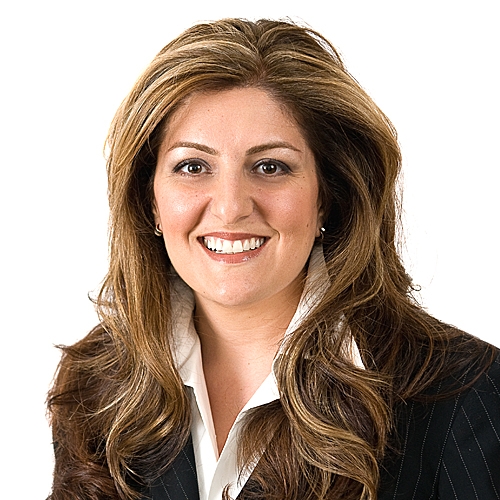
Tongue Tie and Orofacial Myofunctional Development

Dr Marjan Jones, a dental surgeon in Brisbane Australia pioneered a multi-disciplinary approach to the treatment of oral restrictions in Australia. With over 20 years’ experience with dental lasers and extensive knowledge of the comprehensive treatment of oral restrictions, her practice treats patients of all ages, offering a team-based approach to surgery incorporating in-house myofunctional therapy and orthodontics for treatment for children and adults. For infant patients, she collaborates with IBCLCs and cranial therapists for a comprehensive approach toward functional outcomes. She co-founded the Tongue Tie Institute designed to advance the education of health professionals in the treatment of oral restrictions. She now lectures to practitioners from Australia and around the world who have been introduced to a team approach to the management of oral restrictions. She has personal experience with the effect of tongue ties and their effect on herself and family (including breastfeeding challenges) and is determined to help others avoid or overcome their impact. She is a Fellow of the World Clinical Laser Institute, a member of the Academy of Laser Dentistry, the Academy of Breastfeeding Medicine and was the immediate past Chairperson of the Interim Board of the International Consortium of Ankylofrenula Professionals (ICAP). He passion for breastfeeding has resulted in studies toward IBCLC certification.
Michelangelo at work - Tongue Tie and Orofacial Myofunctional Development
Our oral and facial muscles are the master sculptors of our jaws and face. Research and clinical findings show that changing resting oral posture and functional habits of our oral and facial muscles not only influence structure but also affect function. The important functions of the orofacial region include breathing, eating/drinking (including breastfeeding) and speaking.
Breastfeeding is the premier and pivotal determinant of orofacial myofunctional habits. Beyond the many risks of not breastfeeding, malocclusion (poorly positioned jaws and teeth) is a very significant risk.
As such it is important that all health practitioners working with neonates rally to educate, accompany and support breastfeeding dyads toward functional and breastfeeding for as long as possible.
The tongue’s ability to move (particularly to elevate) affects breastfeeding biomechanics. As such, a tethered tongue’s range of motion and span of influence is a deviation from the physiologic norm. Teaching a dyad to compensate or simply manage through sub-optimal breastfeeding and its resulting symptoms can have consequences in functional outcomes later in life. Compensations have consequences that emerge well beyond breastfeeding years.






